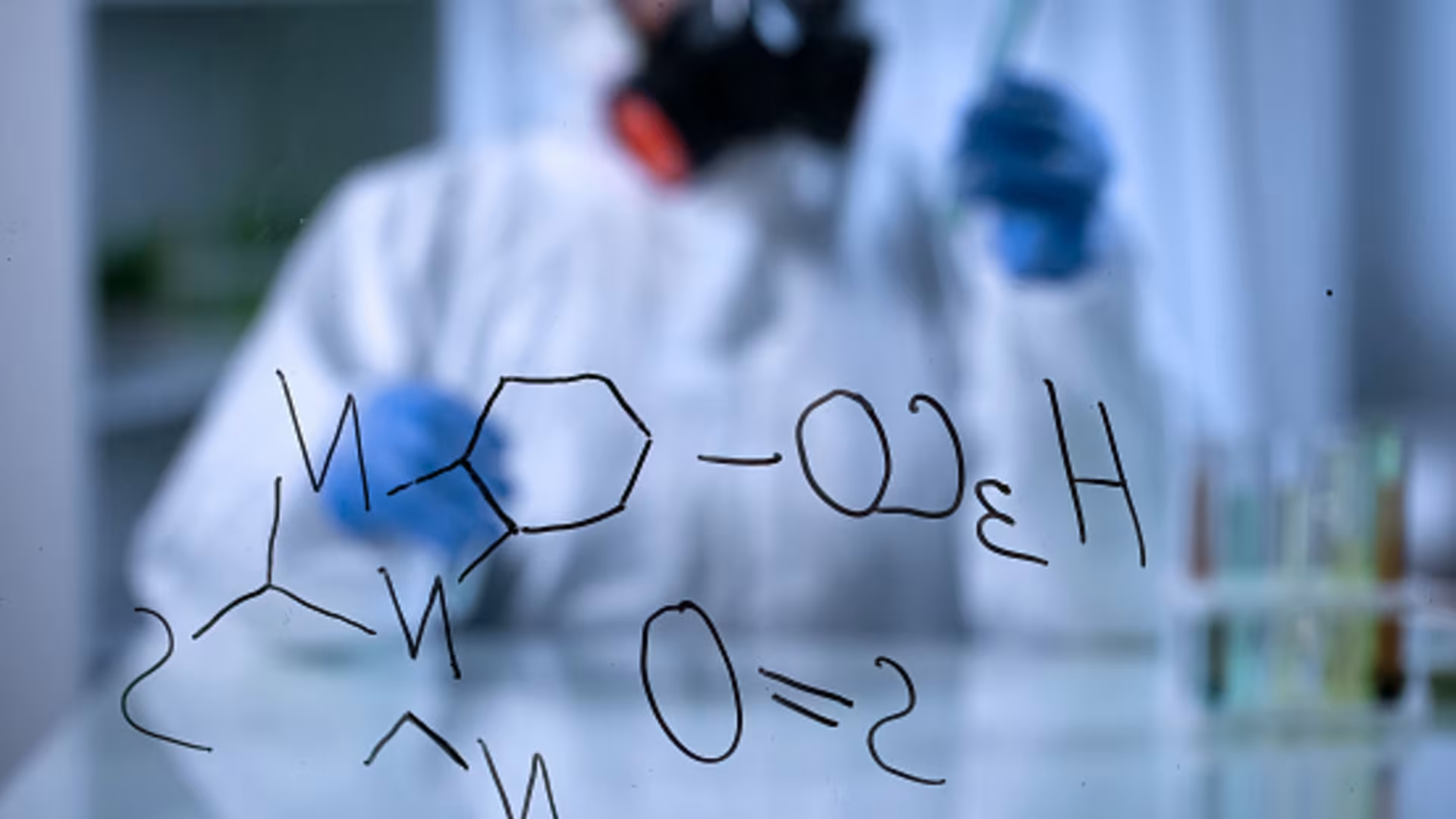Read time 8 minutes
Published on Apr 26, 2022
Are you passionate about science and interested in a career that would enable you to make a positive difference in your community? You might consider a career in forensic toxicology. Many of these professionals work in collaboration with law enforcement officers, helping to protect the community. They do this by compiling and analyzing criminal evidence. Others help to keep the nation’s roadways safer by working on impaired driving cases. Continue for an in-depth look at this fascinating career and an overview of how to become a forensic toxicologist.
What Do Forensic Toxicologists Do?
Toxicology refers to the study of how drugs, chemicals and similar substances affect biological systems and processes. Forensic toxicology is at the intersection of science and the law. These professionals are a type of medical scientist. They examine how substances may have affected human behavior or otherwise contributed to an unlawful act.
The work that forensic toxicologists do is vital for identifying substances criminal suspects may have been under the influence of and developing sufficient evidence to convict them in court. When working, they collaborate closely with other scientists, lab technicians, forensic pathologists, homicide investigators, crime scene technicians and similar professionals to put together a case against a suspect. As the observations of the arresting officer provides the foundation for the arrest, it is the work of the toxicologist that provides strong support for the officer’s decisions and can contribute to a conviction.
Unlike crime scene investigators, forensic toxicologists do not visit crime scenes. Their work is primarily conducted in a lab. They use state-of-the-art lab equipment to analyze collected samples, which may include body fluids, tissue samples, hair, nails and any other specimen that may shed light on the substances a person has ingested as part of a criminal investigation.
There are a variety of techniques and analysis tools that a forensic toxicologist might use to analyze the evidence. These include the following:
These tests are used to determine which drugs or other substances are present in a sample, as well as the concentrations of those substances. Forensic toxicologists must apply their expert knowledge to interpret test results, such as by determining the timing and extent of impairment due to a person’s drug use.
After analyzing the samples and interpreting the test results, forensic toxicologists type up reports that detail their findings. Those reports are then sent to law enforcement officers and other involved professionals, such as the prosecutor assigned to the case. The toxicologist may need to provide follow-up information to law enforcement personnel if any questions remain or any new evidence becomes available for the case.
If the case goes to trial, the toxicologist can expect to be called to testify. The testimony will explore the toxicologist’s lab procedures and test result interpretations. The professional will be called upon to explain how the suspect or victim would have been impaired by the substance(s) found in the samples.
Where Do Forensic Toxicologists Work?
It’s often thought that forensic toxicologists primarily work in crime analysis labs in coordination with local police departments. These professionals also work in a medical examiner’s office, military, governmental and private sector labs.
There are also opportunities within hospitals and universities. For example, a forensic toxicologist may decide to assume a teaching/research position at a university. The setting in which you will work depends largely on your chosen specialization. There are four main specializations within the forensic toxicology field:
If you decide to go into workplace drug testing, for instance, you might work at a private-sector facility that provides testing services for employers of CDL drivers. Or, if you’ve chosen human performance toxicology, then your work will focus on how drugs and alcohol affect human behavior and performance. For example, you might evaluate the extent to which a driver charged with driving under the influence (DUI) was impaired by drugs.
Becoming a Forensic Toxicologist
If you’re interested in the process of how to become a forensic toxicologist, you can begin furthering your career aspirations as early as high school. Meet with your school guidance counselor and discuss your career plans. Your guidance counselor can help you adjust your course load, like adding more science and math courses or adding a humanities course to learn about collaboration and effective communication.
Helpful courses for future toxicologists include:
In addition, look for extracurricular activities that can position you for career success. Get involved with science fairs and relevant clubs to develop leadership experience and teamwork skills. These activities will also help enhance your academic resume.
The next step in the process of how to become a forensic toxicologist is to earn a bachelor’s degree in a natural science. You may then immediately put your skills to use in an entry-level position, or you might decide to earn your graduate degree right away. A graduate degree isn’t strictly required, but it’s often recommended.
You can further enhance your career qualifications by pursuing professional certification. However, this might not be mandatory, depending on your employer. Certified forensic toxicologists and those working in accredited laboratories are expected to complete continuing education (CE) hours on an ongoing basis throughout their career. Even if you elect not to become certified, however, it’s still important to stay on top of the latest research and trends in the field.
Earning an Undergraduate Forensic Science Degree
As you approach your high school graduation date, you will need to begin exploring undergraduate degree programs. All aspiring forensic toxicologists must hold at least a bachelor’s degree in a natural science. This begs the question: Which type of bachelor’s degree should you pursue?
There is no universal requirement. You may choose to major in chemistry, clinical chemistry or biochemistry, for example. However, the best option is to choose a forensic science degree that will allow you to develop all of the core competencies you’ll need for your future career.
A degree that focuses specifically on forensic science, rather than chemistry in general, will explore the applications of scientific concepts to criminal evidence analysis. The curriculum will vary from one school to the next, but in general, you can expect to study topics such as the following:
Although many degree programs are available online, you should expect to be on campus for the duration of a forensic science degree program. This is because many of your courses will have laboratory components, and you will need to dive into hands-on practice. This will also allow you to build and expand your resume, as you will be able to include the instruments and software you used.
You may wish to complement your classroom and lab studies with an internship and/or job shadowing opportunity. Talk to your school’s career services department about local opportunities in labs, police precincts and similar settings.
Consider Earning a Graduate Degree in Forensic Science
It isn’t strictly necessary to earn a master’s or doctoral degree in forensic science in order to begin working as a forensic toxicologist. However, many of these professionals do indeed have a graduate degree. Some employers may require an advanced degree, while other employers may not necessarily require it, but may offer a higher salary to forensic toxicologists with more advanced credentials.
After graduating with your undergraduate forensic science degree, you may decide to immediately go on to a graduate program or to enter the workforce right away. You can always go back to school later to acquire a graduate degree if you wish.
If you do decide to earn a graduate degree in forensic science, you can expect to take a deep dive into course material that explores advanced evidence analysis topics. Those enrolled in a master’s degree program may complete a master’s thesis.
A dissertation is typically required for doctoral students. To complete a dissertation, you will conduct original research on a forensic science topic of your choosing. Your original research can be published to help expand the current body of knowledge in the field.
Gain Entry-Level Experience in a Laboratory
Your classroom and lab studies will effectively prepare you for your future career. However, you should be aware that this particular field does require extensive on-the-job training as well. It’s not uncommon for aspiring forensic toxicologists to first land an entry-level role. For example, you may work for a couple of years as a laboratory assistant, lab specimen processor or forensic science technician. In an entry-level role, you’ll gain invaluable experience, further refine your lab skills and learn how to conduct yourself as a professional. Once you gain experience, you can then begin working toward a higher-level position as a forensic scientist.
Pursue a Professional Certification
There is no legal requirement for forensic toxicologists to obtain a professional certification. However, some employers may require it or prefer it. Furthermore, securing a professional certification can allow professionals to advance in their careers. The main body that administers forensic toxicology certifications is the American Board of Forensic Toxicology (ABFT). There are two main types of certification options: an analyst certification and a diplomate or fellow certification.(See disclaimer 1) An analyst certification is akin to an entry-level certification; you can qualify to pursue it if you have at least a bachelor’s degree in the field.
A diplomate or fellow certification is appropriate for professionals with at least three years of full-time work experience in forensic toxicology (or the part-time equivalent). Those applying for the fellow certification must possess a doctoral degree, while aspiring diplomates must possess at least a bachelor’s.
You must submit your certification application, plus at least two professional references, your transcripts and the application fee. The ABFT will then review your information to determine your eligibility. If you’re accepted as a candidate, you’ll have two years to take and pass the certification exam administered by the ABFT.(See disclaimer 1)
To keep your certification current, you’ll need to submit proof of continuing education hours. You’ll also need to renew your certification every five years.(See disclaimer 1)
Important Skills and Characteristics of Forensic Toxicology Professionals
Throughout your studies, you can work on developing the crucial skills and characteristics that you will need to be an effective toxicology professional. Forensic toxicologists who work in crime labs should have the mental fortitude to handle the unpleasant details of criminal activity. Other important traits and skills include the following:
You can begin working toward a rewarding career in forensic science when you join the Christian learning community at Grand Canyon University. The Bachelor of Science in Forensic Science degree will empower you to develop the core competencies needed for this field, including biochemistry, physical evidence analysis and toxicology. Click on the button above to Request Info about our degree programs.
Retrieved from:
(See disclaimer 1) American Board of Forensic Toxicology, American Board of Forensic Toxicology Certification Overview, from October 2021





